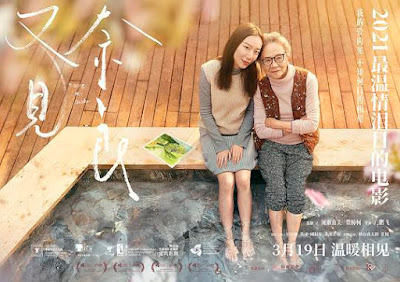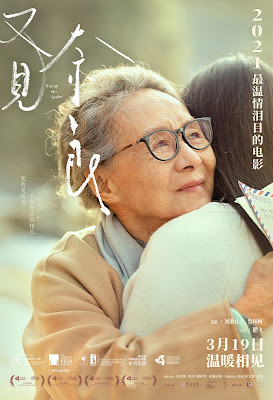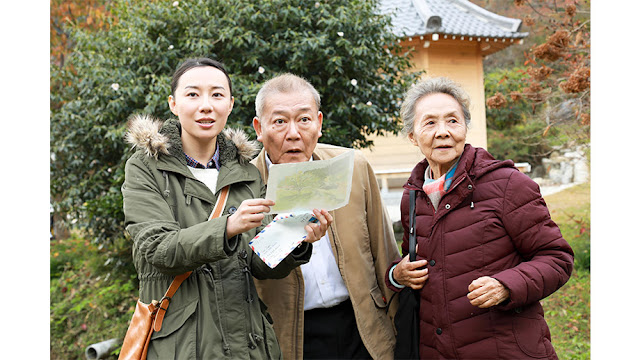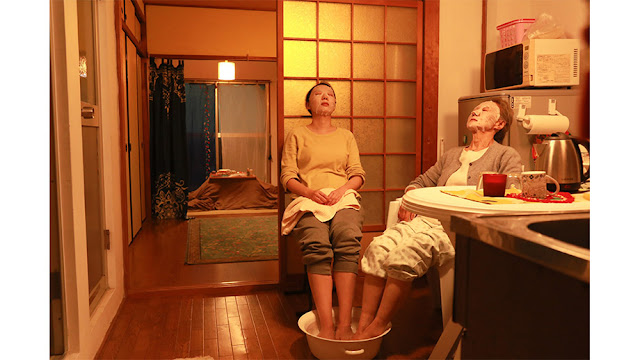Tracing Her Shadow

Director: Song Peng-fei
Year: 2020
Rating: 6.5
This Chinese-Japanese co-production
is very gentle, calm and at times painstakingly slow moving but beneath this
it addresses a social issue that was new to me. It never rants or gets angry
but over the course of the film it brings to the surface an historical tragedy.
After the end of WWII and the surrender of the Japanese, thousands of Japanese
families who had settled in Manchuria had to flee the country. Many of them
felt the trip would be too dangerous for their small children and so they
left them with Chinese families to be brought up. And they were brought up
as Chinese often with no idea that they were of Japanese heritage. In the
1980s the Chinese government made public who these children were. They had
struck a deal with the Japanese that these children could return to their
homeland. But once people knew of their ancestry they were often treated
badly in China. So thousands returned though they spoke no Japanese and knew
nothing of their customs. And found themselves treated just as badly in Japan.
Japan has a history of treating "outsiders" very poorly. The Koreans who
moved to Japan generations ago are still discriminated against. Even Japanese
who spent large parts of their lives overseas due to their parents work are
not completely accepted. Every country has its racist aspects. Japan for
sure.

The female director Song Peng-fei distills
all this down to one small personal story. It is set in 2005 in the city
of Nara. Chen Hui-ming (Wu Yanshu), an elderly woman comes to Japan to look
for her foster child Chen Li-hua who she has lost touch with for a few years.
Li-hua had been left on her doorstep in 1945 but in the 1980's had gone to
Japan to look for her parents. The old lady (who is quite wonderful) gets
the help of a family friend - the half Chinese-half Japanese Hatsumi (Ying
Ze) whose parents are still in China but she decided to live in Japan. Again
though never really addressed she finds herself in a nether world of not
being either Chinese or Japanese. Early on a man says to her "Where are you
from? I hear a slight accent" and she defensively yells she is Japanese.
She had a boyfriend whose parents would not give him permission to marry
her because of her half Chinese identity.

Through letters sent to the mother and
the help of a retired lonely policeman (Kunimura Jun), they attempt to track
the foster daughter down. From place to place. The letters are heartbreaking
once you begin to read between the lines of despair. Li-hua never was able
to fit in - keep a job, keep an apartment, able to learn the language. At
one point she thought she had found her family but a blood test came back
negative and the family wanted nothing to do with her. It is a trail of tears.
But the film never devolves into sodden melodrama - the threesome just keep
looking and at times is quite sweet and humorous. Along the way they meet
up with other War Orphans (riben yigu) who are all between countries and
belonging to none. The ending is . . . left very much up in the air and I
found that frustrating after spending 90-minutes with the trio and getting
quite fond of them. I like clear endings. Some may find the relaxed narrative
and the offshoots into aspects of Japanese life that have little to do with
the story perplexing but in some ways those were my favorite parts - tofu
donuts anyone.





